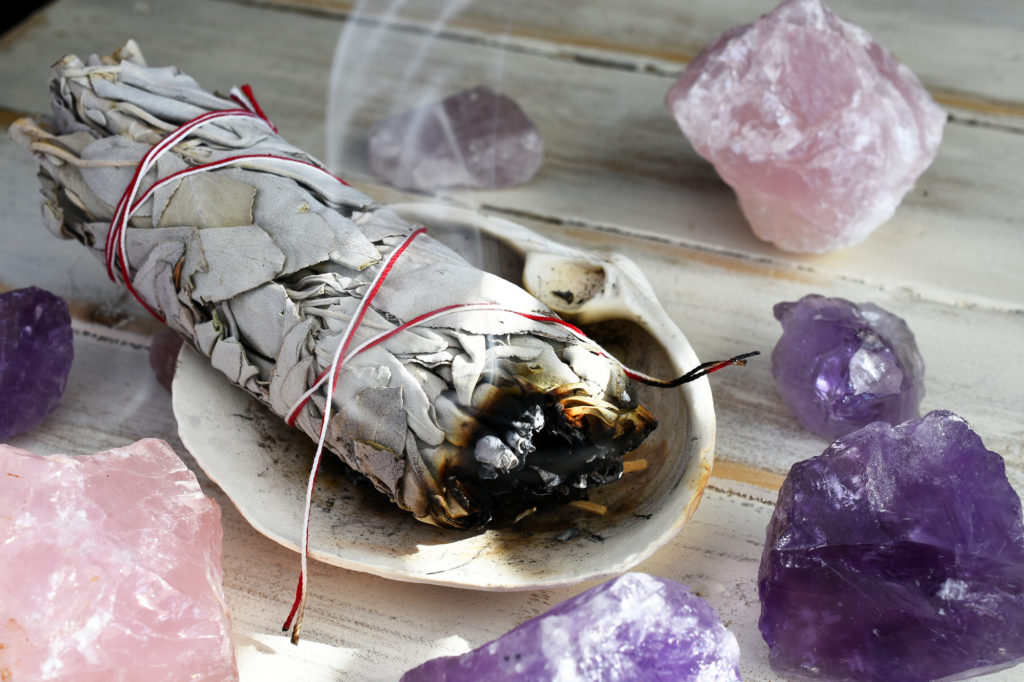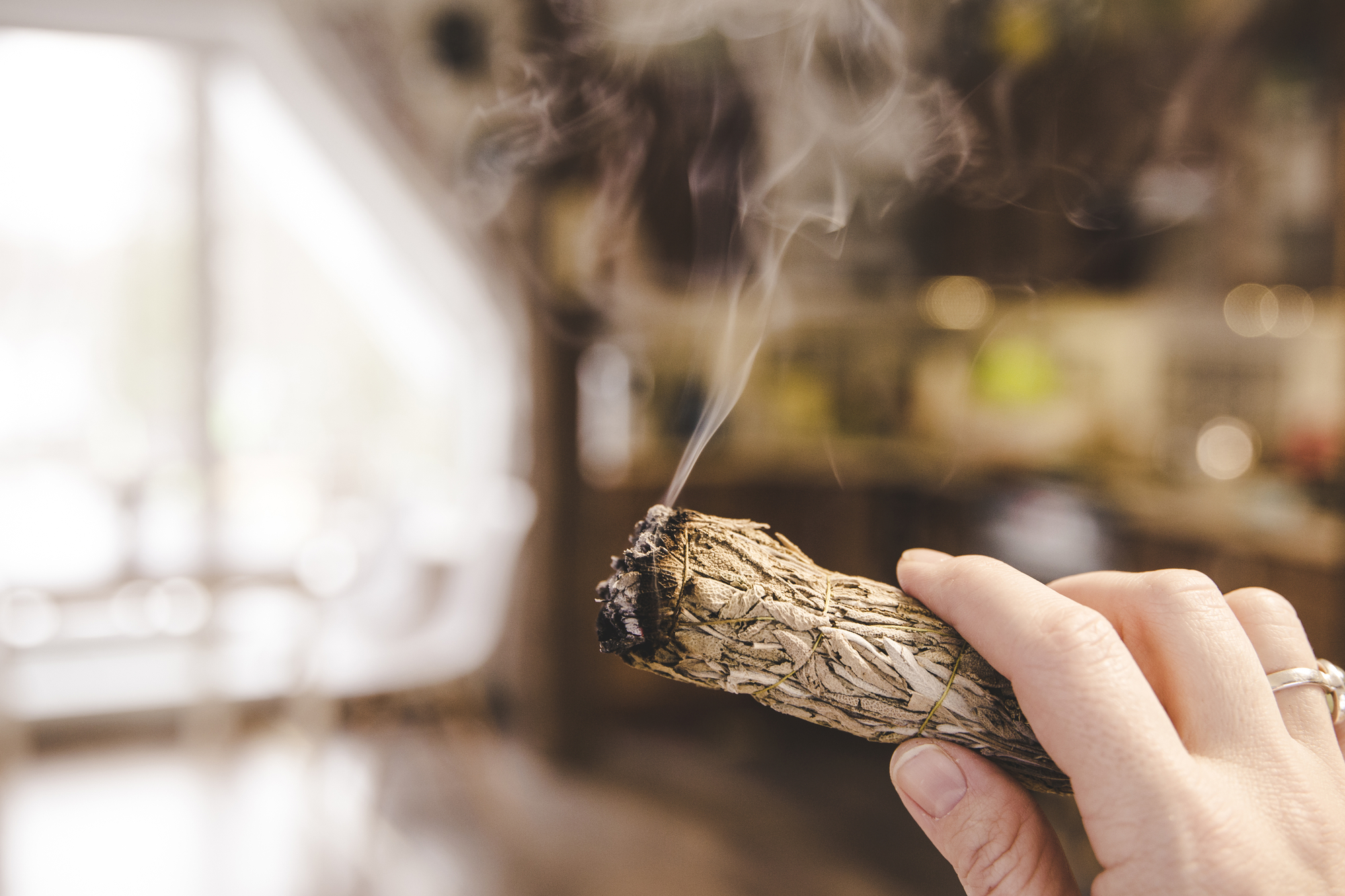There are many people who burn sage for the purposes of spiritual clarity, removing negative energy or spirits, cleaning the air, health benefits, and even just for the fragrance. Although burning sage is known to derive from Native American practice, it is most commonly seen among neopagan spiritualism and New Age practices.
Because there is no specific reference in the Bible to burning sage, many reasons for burning sage would be considered an issue of wisdom and a matter of the heart and conscience. Those who desire to burn sage for spiritual purposes would clearly be engaging in practices that are unrelated to worshiping the God of the Bible. As such, burning sage for spiritual purposes is opposed to the teaching of Scripture. Christians who are considering burning sage would do well to discuss the practice with pastors or other elders in their local church.
Contents
What Does the Bible Say About Burning Sage (KJV)?
Although the practice of burning sage for getting rid of evil spirits (also known as “smudging”) is thought to have existed among indigenous peoples thousands of years ago, the Bible never specifically discusses sage. There are, however, many occasions in Scripture where incense burning is included among the various spiritual practices associated with Old Testament sacrificial rituals, a practice which was uniquely performed by the Aaronic priests in the tabernacle or temple.
The altar of incense stood directly before the veil outside the Most Holy Place in the tabernacle and temple. The priests would offer a special blend of incense on the altar regularly (Exodus 30:7-8). However, only the incense which was commanded was allowed, in keeping only with those worship practices which God gave to Israel and banning all others:
At times the priests would bring incense inside the Most Holy Place:
There are a few occasions when the fire on the censers, used to hold incense or other burning materials (such as coals from a fire) are associated with unauthorized practice:
The spiritual practices associated with Old Testament worship were exclusive and holy: to incorporate unauthorized worship practices would lead to covenant curses, including death or being cut off from the covenant community (Leviticus 20:1-8).
What is the Meaning of Sage in the Bible?
Sage is not mentioned in the Bible. When the Bible mentions burning incense it is referring to a holy (or special, set apart) mixture of sweet spices: stacte (gum resin of a shrub), onycha (some kind of spice), and galbanum (a kind of aromatic gum resin), along with pure frankincense (an aromatic gum resin).
Herbs generally were not uncommon in biblical times, and herbs other than sage are mentioned in the Bible:
- “bitter herbs” associated with the passover meal (Exodus 12:8; thought by some to be horseradish or chicory, though it could refer to a number of bitter tasting herbs)
- “herbs” more generally (describing some sort of edible plant or even vegetables)
- “mint and rue and every herb” associated with the various garden herbs tithed by the Pharisees (Luke 11:42)
What Does the Bible Say About Burning Sage to Cleanse a House?
The Bible never talks about burning sage to clean a house. It is therefore important to (a) identify the purpose of burning sage, (b) look at Scripture as a whole to determine whether or not it would be biblical, and (c) and discuss the practice with pastors or church elders if there is any question about whether the practice is unbiblical or spiritually dangerous.
Burning sage to ward off evil spirits or remove negative energy is always in disagreement with Scripture and would be considered a sinful practice. Whether a person is dealing with demonic activity or anxieties, we should seek God through his Word above anything else. Only He has the power to defeat Satan (2 Thessalonians 3:3). He has the power to exchange anxiety for peace and rest, because “he cares” (1 Peter 5:7; Proverbs 19:23). Smoke from an herb will never have more power than the One who created it, and people should not seek spiritual help from inanimate substances in exchange for the One who lives (Isaiah 8:19). To put something in the place of God is sinful and the Bible does not support it.
If a person burns sage to clean a house in a way that is not associated with any spiritual practice, then it is presumably acceptable. A quick search of the internet will reveal various opinions on whether burning sage kills bacteria. Whether legitimate or not, burning sage in this manner would be more akin to using household cleaners or spraying antibacterial aerosols, which are permissible if used ethically, in accordance with their label and intended use.

Is Burning Sage Against Christianity?
Burning sage is a widely practiced activity that has many purposes. To determine whether or not it aligns with Christianity, we must first understand the motivation for the burning.
Health Benefits
God is the Creator and Sustainer of our bodies. We should come to him with our health ailments and our anxieties long before we seek healing through herbs. While sage is thought to have positive health benefits, God is able to heal and restore with or without sage.
Fragrance
Sage is reported to reduce household toxins and many people burn sage because they enjoy the smell. When used merely as an air freshener, burning sage is not sinful or against Christianity.
Prayer
Some Christians burn sage or other incense as a means to set an atmosphere that helps them to focus on prayer and meditation on Christ. Whether or not this is permissible is a matter of the heart and personal conviction, and arriving at that decision should be done with the guidance of pastors or other church leaders.
A Christian should understand that burning incense is not necessary for prayer and has no power (other than aesthetics and aroma) to draw one to Christ.
When the Bible speaks of prayer as associated with incense, it most prominently associates prayer with the approved worship practice of the priests burning incense in the sanctuary before the Most Holy Place (Psalm 141:2; Luke 1:10; Revelation 5:8; 8:3).
Spiritual Practices
Sage is commonly burned for spiritual reasons in witchcraft, the occult, neopaganism, etc. It is thought to clear the spirit world of evil or negative energy. This use of sage is entirely opposed to Christianity. In fact, the Bible is explicitly clear that it is sinful to partake in sorcery and witchcraft (Deuteronomy 18:10; Malachi 3:5; Galatians 5:20).
Others who burn sage believe it has some sort of spiritual property, but they do not align specifically with the occult or witchcraft. Even this indistinct spiritualism (which may well be termed neopaganism) is against the plain teaching of Scripture (1 John 4:1) and could prove spiritually dangerous.

